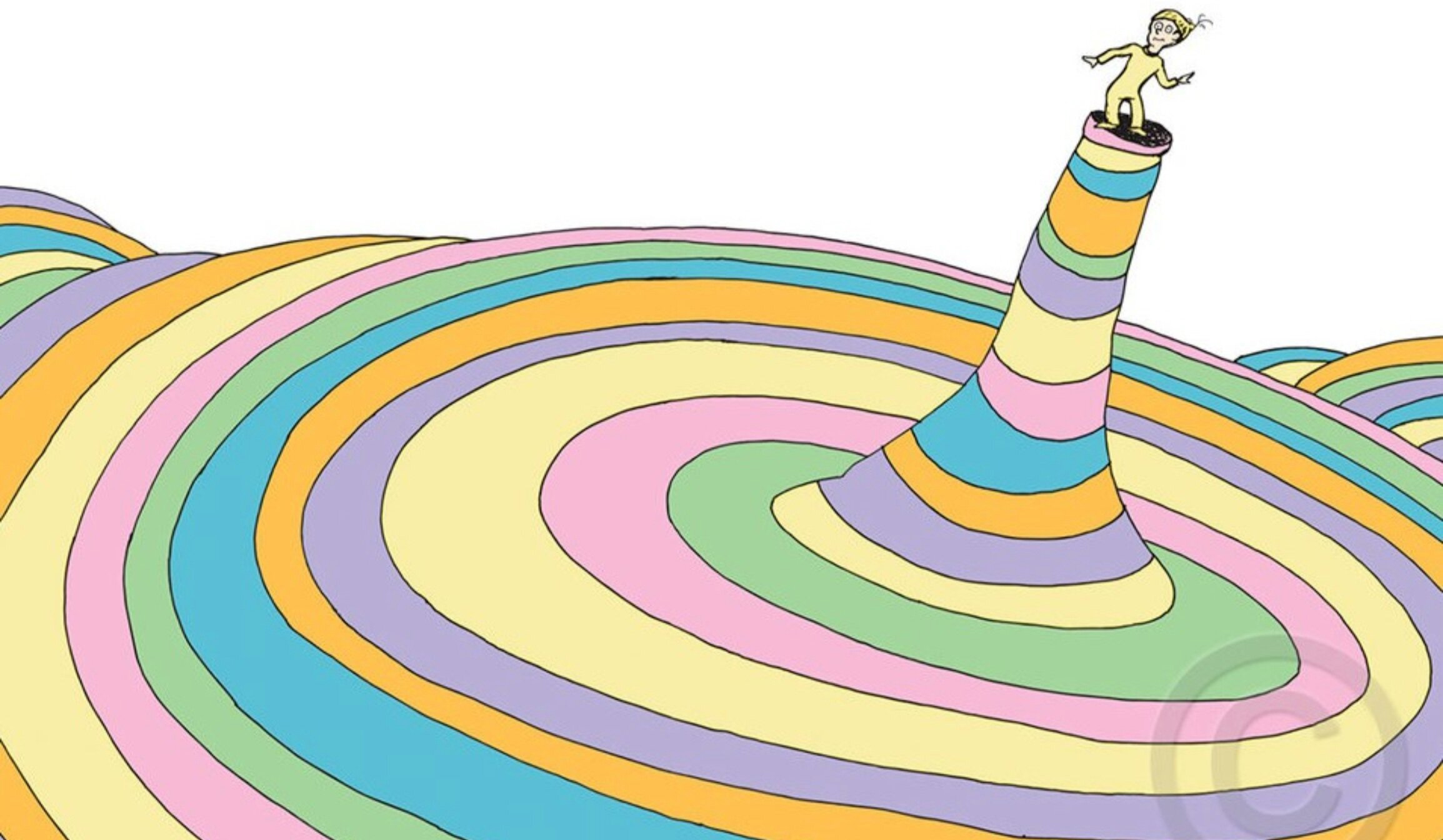“You have brains in your head. You have feet in your shoes. You can steer yourself any direction you choose. You’re on your own. And you know what you know.
And YOU are the one who’ll decide where to go…”
~ Dr. Seuss, Oh, The Places You’ll Go!

When I was a classroom teacher, this quote was posted on my wall to remind my students that they would have many choices in life. I wanted my students to be ready to explore the world and walk through all the doors that would open for them.
I was recently re-inspired when I saw these same words posted on the wall of a classroom I visited. It reminded me not only of the inspiration I find when reading many of the Dr. Seuss books, but also that each of his books has a message — some buried deep within the text, others more obvious, almost jumping off the page.
Green Eggs and Ham can teach us about the importance of modeling and of encouraging a growth mindset. Just like Sam — one of the book’s main characters — educators need to be open to new ideas and model a growth mindset so that our students can engage in the practices of historians, scientists, writers, and mathematicians.
The Lorax reminds us that everything is interconnected and that, in order to make an impact, we must be invested and care a whole awful lot… which certainly describes the way teachers meet their students each day.
Oh, The Places You’ll Go! is about perseverance, but also about adventure and taking risks. As educators, we have the power to help our students explore places previously unimagined and engage in deeper learning — with a little help from 21st-century technology and our own willingness to connect with people and resources that were once beyond our reach.
And we don’t even have to ride a bus or fly on a plane to take our students to a museum, a farm, or even to outer space to enhance instruction and address standards because we’re no longer limited by geography within the confines of a science text.
So, what are we waiting for?
Virtual Journeys: Steer Yourself Any Direction You Choose
We can find innovative ways to address NGSS and other standards by exposing students to virtual learning experiences. We’re not alone on this journey, as others have successfully paved a road for us to follow.
Ditch That Textbook
Matt Miller, author of Ditch That Textbook, curated a list of his recommended — and free — virtual trips.
- You can take your students on a trip to Edison National Historic Site to supplement their learning about the transfer of energy in elementary, middle, or high school.
- You can explore Aviation Science.
- You can learn about the human impact on the environment at Point Lobos State Nature Reserve.
- You can Skype with a Yellowstone National Park ranger to learn more about geology (geysers, hot springs, volcanoes), ecology (fire, wildlife — bears, bison, elk, wolves, and more), or cultural history (Native American, world’s first national park, tourism).
- You can learn about a penguin breeding colony in Antarctica, African seabirds, and Asian elephants.
California Academy of Science
If you want to share the practices of scientists and how science really works, head to the California Academy of Science.
- Show students a video about the discovery of a new species of spiders. To make sure students get the most value from this virtual trip, we might complete a Notice/ Wonder template, which could then be used as the basis for a follow-up discussion. Note that an activity like this will also help students meet ELA standards of close reading, note-taking, and speaking and listening.
The Exploratorium
If you go on a virtual trip to the Exploratorium, you’ll find many online videos, lectures, experiments, and Science Snacks to supplement your classroom instruction.
A few ideas for exploration include:
Students are always intrigued by the unknown. So why not leave Earth for awhile and visit the International Space Station, where students can engage in mathematics, social studies, and science.
There are resources for educators to get started planning lessons for students. And you can engage your students with lessons on:
- Mission Possible: Women of the Hubble Space Telescope
- Hidden Figures To Modern Figures: Students See SLS Rocket at Michoud
- Elmo Visits NASA
- Real World Citizen Science
- Spinoff 2018
- Engineering Career Days
- NASA Engineering Design Challenges
- Elon Musk’s Tesla orbiting the Earth
This is only a small sampling of the resources and experiences that are merely a few clicks away from your classroom. And don’t feel pressured to follow a prescribed course — you can easily create your own learning journey in the form of a WebQuest or a virtual field trip.
What will be the impact of embracing the opportunities that come with new technology and connectedness on science education?
I believe that the more we reach for relevant, engaging, creative, playful ways to teach our students, the more successful they’ll be in learning to be scientists and engineers in our classrooms. Our students can play to promote academic learning, to increase social-emotional skills, and to make better connections across the other subjects they learn in school and with their lives outside of the classroom.
But first, we — as educators — must be willing to embrace new methods of teaching and learning and to incorporate new types of resources and experiences into our curricula. We have to take the first risks to model the way and open doors for our students.
I want to be like the Lorax, I want to make an impact. How about you?
How are you using 21st-century methods and resources to open doors for your students as they navigate NGSS and all content areas? Have you experimented with virtual journeys like WebQuests and virtual field trips? Share your ideas in the comments below.
Kathy Renfrew is the K-5 science coordinator for the Westwood, MA schools. She has been deeply involved with the development and implementation of the NGSS and is co-developer/presenter of NSTA: Teaching NGSS in K-5 webinars. Kathy earned National Board Certification in 1998 and won the prestigious Presidential Award for Excellence in Mathematics and Science Teaching in 2000. She taught science for over 30 years. While in the classroom, Kathy won a Toyota Tapestry grant and built a 16×20 foot log cabin with her students outside her classroom window. Kathy’s passion is improving science opportunities and education for all K-5 Students.








